1. What Is Continuous Level Measurement?
Continuous level measurement is the process of real-time monitoring of the level of liquids, powders, or bulk solids in tanks, vessels, or silos. Unlike point level measurement—which only detects high or low level thresholds—continuous level sensors provide precise readings throughout the full measurement range.
Industries such as chemical processing, food and beverage, water treatment, and manufacturing rely heavily on continuous level measurement to:
Prevent material shortages or overfills,
Optimize resource use,
Automate processes,
And ensure operational safety.
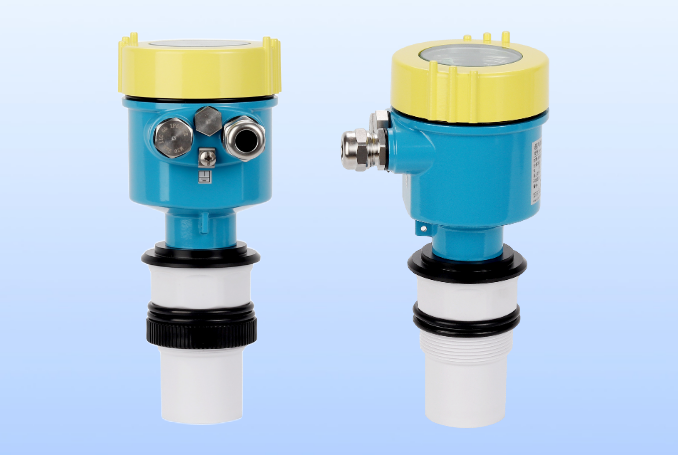
2. Overview of Continuous Level Measurement Technologies
Level transmitters convert the height of a material inside a container into electronic signals. These signals can be displayed locally or integrated into control systems like SCADA or DCS.
The selection of the right sensing technology is crucial for accurate and reliable measurement. Commonly used types include:
Radar level transmitters
Ultrasonic level transmitters
Magnetic level gauges
Each offers unique advantages based on the application environment, material type, and process requirements.
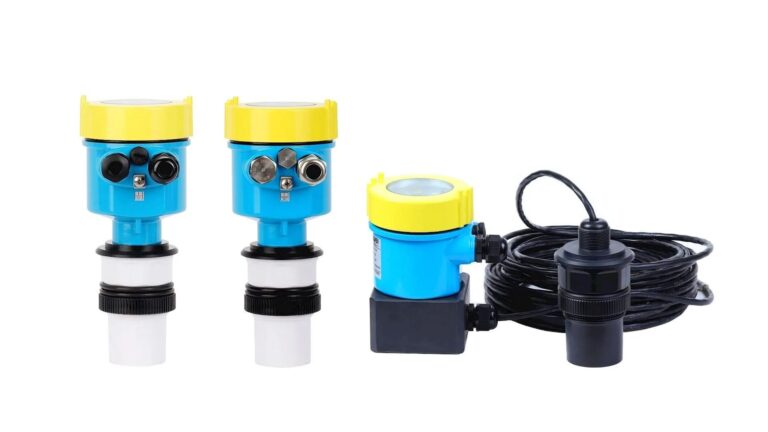
3. How to Choose the Right Technology? A Closer Look at Three Solutions
✅ 1. Radar Level Transmitters – High-Precision with Adaptive Technology
Recommended for: Liquids, powders, and solids in process tanks or silos
Radar level transmitters use electromagnetic waves to measure material levels non-contact, making them ideal for challenging environments.
The Jiwei radar level transmitter offers:
±1mm accuracy, even in dynamic conditions
Adaptive technology that automatically adjusts to handle steam, dust, foam, or temperature variations
Bluetooth connectivity for wireless configuration and real-time monitoring via mobile app
Wide measuring range: up to 30 meters
Non-contact design: eliminates sensor wear and contamination
High durability: suitable for corrosive, high-pressure, or high-temperature processes
➡️ Use this technology if your process involves:
Viscous liquids
High-pressure tanks
Dusty environments
Applications requiring zero maintenance
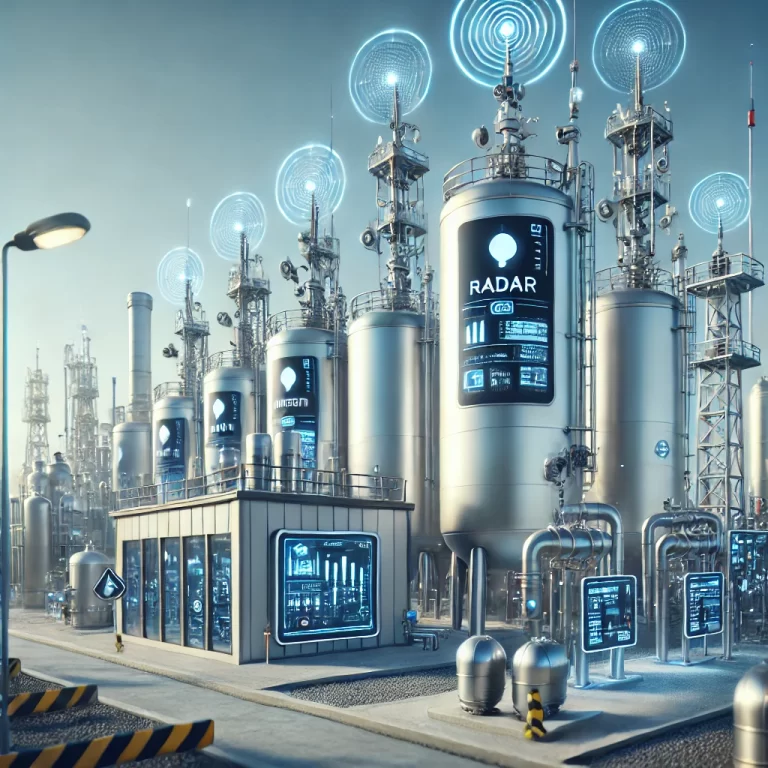
✅ 2. Ultrasonic Level Transmitters – Cost-Effective & Explosion-Proof Option
Recommended for: Water, chemicals, and non-volatile liquids in open or closed tanks
Ultrasonic level transmitters measure level using high-frequency sound waves. They provide a non-invasive and budget-friendly alternative to radar.
Jiwei’s ultrasonic solution features:
Explosion-proof certification (Ex d IIC T6 Gb) for hazardous environments
RS485 communication for easy integration with industrial control systems
Remote separation design, allowing flexible mounting and simplified maintenance
Durability against condensation and dust
Economical pricing for broad industry adoption
➡️ Choose ultrasonic level transmitters if you need:
A low-cost, non-contact solution
Basic level monitoring in water or chemical tanks
Certified devices for explosive areas (e.g., fuel storage)
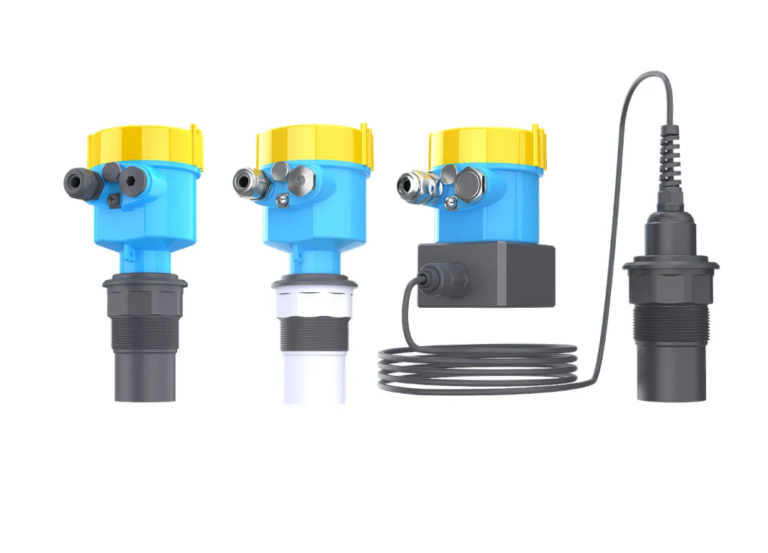
✅ 3. Magnetic Level Gauges – SIL2/3 Certified with Visual Indication
Recommended for: Corrosive or hazardous liquids, oil tanks, and safety-critical processes
Magnetic level gauges use a float and indicator mechanism to display liquid level and can be enhanced with electronic transmitters or switches.
Jiwei’s magnetic level gauges include:
Over 10 national patents for design innovation
SIL2/SIL3 certification for functional safety (with compatible transmitter and magnetic switch)
4-20mA + HART communication for system integration
Visual indicators for power-free local readouts
Corrosion-resistant construction for aggressive chemicals
Excellent stability and accuracy over long-term use
➡️ Ideal for:
Safety-focused applications
Storage of flammable or corrosive liquids
Systems requiring both visual and digital output
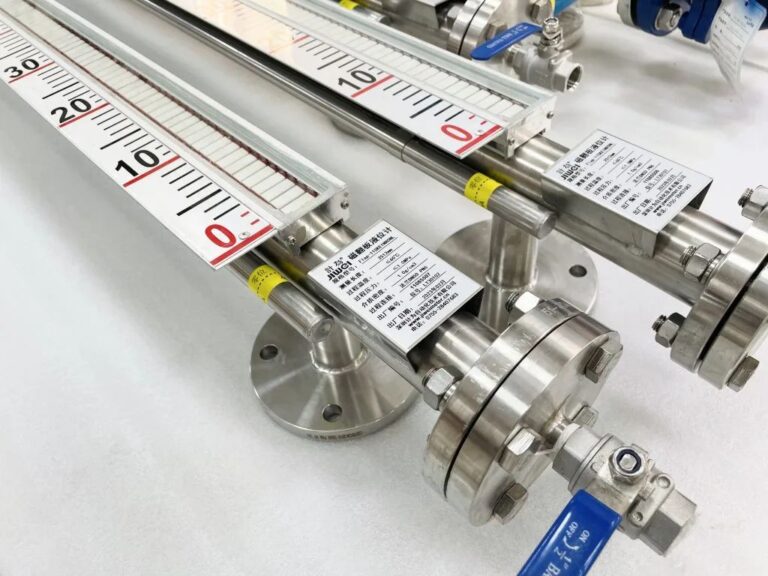
✅ 4. Comparison Table of Technologies
| Technology | Accuracy | Communication | Key Features | Ideal Use Case |
|---|---|---|---|---|
| Radar | ±1mm | Bluetooth | Adaptive, high-range, harsh environments | Powders, hot liquids, silos |
| Ultrasonic | ±5mm | RS485 | Explosion-proof, affordable | Water tanks, non-foamy liquids |
| Magnetic Level Gauge | ±5mm | 4-20mA + HART | SIL2/3 certified, local visual reading | Corrosive chemicals, safety systems |
5. Why Continuous Level Measurement Matters
Accurate and real-time level monitoring plays a vital role in:
✅ Process Optimization: Ensures consistent material flow and reduces downtime
✅ Inventory Control: Prevents stockouts or overflow, aiding production planning
✅ Safety & Compliance: Minimizes the risk of spills, overpressure, or equipment failure
✅ Energy Efficiency: Reduces waste and unnecessary resource use
✅ Regulatory Compliance: Meets industry-specific safety and operational standards
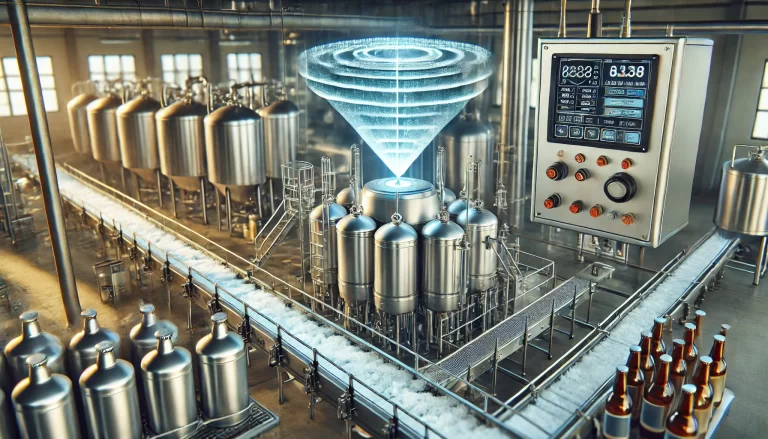
6. Final Thoughts: Making the Smart Choice
Selecting the right level measurement technology depends on your application’s material type, environmental conditions, and safety needs.
Whether you require:
High-precision radar for dusty silos,
Cost-effective ultrasonic for clean water tanks,
Or SIL-certified magnetic gauges for hazardous chemicals—
Jiwei provides tailored, cutting-edge solutions that combine performance, safety, and cost-effectiveness.
Invest in the right level transmitter to:
Boost process reliability
Reduce downtime
And ensure compliance with industry standards
